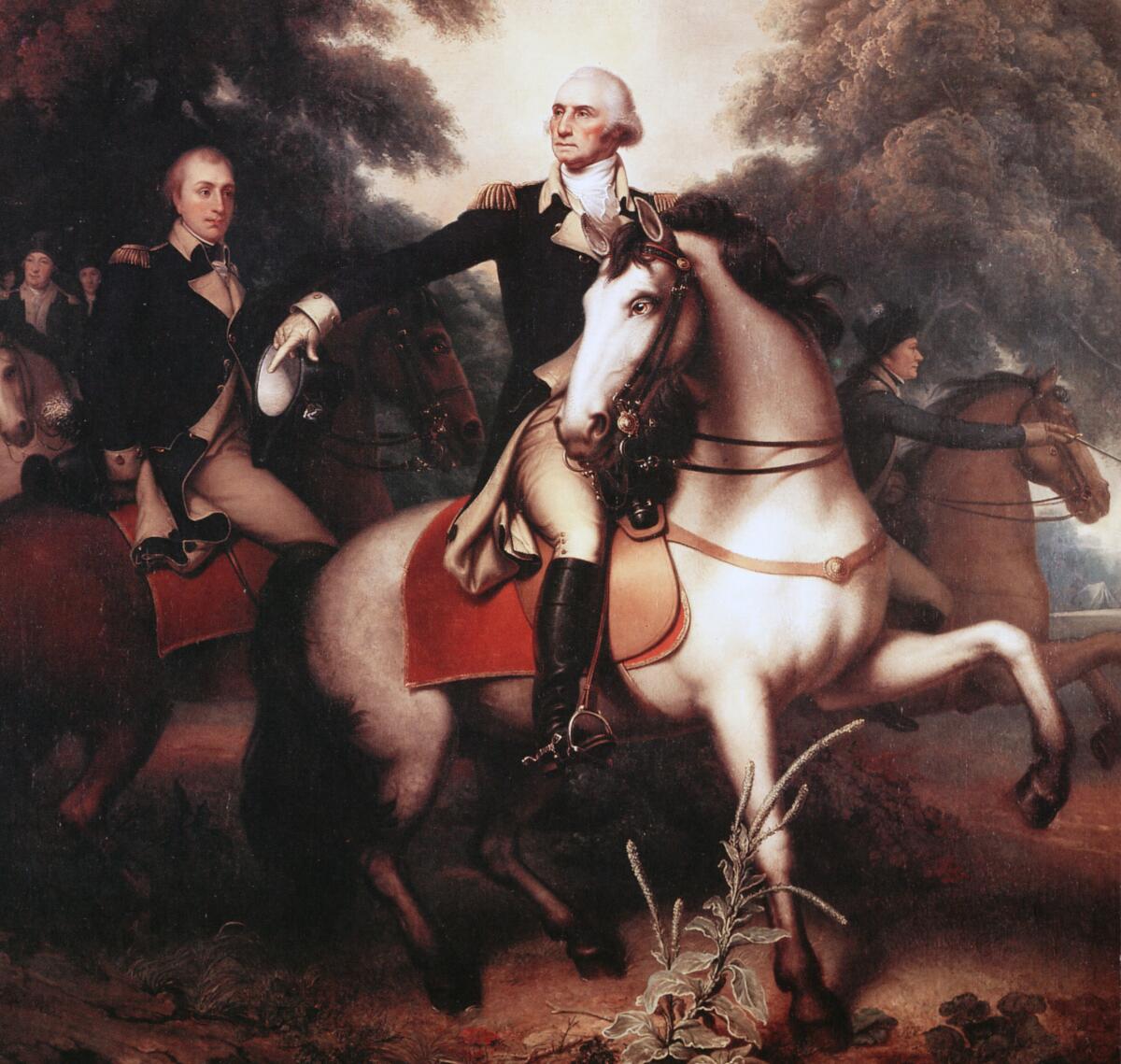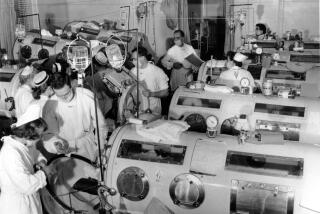Op-Ed: Trump’s not the first president to face a deadly epidemic. But he may be the least suited for the task

Donald Trump isn’t the first U.S. president to face a deadly new pathogen that wreaks havoc on American life and the wider world. But he may be the least suited for the challenge, a judgment based on how a handful of his predecessors confronted these invisible and terrifying foes.
George Washington’s epidemic hit before he was president. In early 1777, he was trying to keep the American Revolution alive against the all-conquering British. Smallpox posed an even bigger problem.
The ancient scourge had just broken out in Boston and would eventually spread to the Pacific, killing tens of thousands of people. The only way to stop it was inoculation, the forerunner to vaccination in which a doctor inserted live smallpox into a patient’s shoulder, usually inducing a mild case and then immunity.
Washington had his doubts. He knew that inoculation could spread the full-blown disease, and he didn’t want to force people to undergo the procedure. Yet he kept reading about how smallpox ravaged whole regions, scaring away potential recruits to his army. After much thought, he ordered every soldier to undergo inoculation.
As president in the 1790s, Washington retained a keen interest in “promoting the interests of humanity” through medical progress.
The next military hero in the White House, Andrew Jackson, was allied with a new generation of pro-slavery southerners who opposed all kinds of federal projects, including vaccination efforts.
Jackson also despised some of his predecessors, including Washington, for allowing “savage” Indians to keep some of their territory.
When he became president in 1829, Jackson was a bitter man, determined to remove Native Americans from the Southeastern U.S. so that white cotton planters — like him — could take over more tribal lands. The mass deportations sometimes, called the “Trail of Tears,” began in 1831, just as the deadly cholera bacterium spread from the Ganges River in India around the globe.
Choctaw and Cherokee refugees as well as poor city-dwellers from New York to New Orleans were especially vulnerable to this water-borne pathogen. In the summer of 1832 they died in heaps, their bodies drained and destroyed by extreme vomiting and diarrhea.
Jackson showed little interest in combating the pandemic, other than recommending “temperance” and submission to God’s will. The hard times, he said, would “produce good in the end” by sweeping away the lazy and immoral.
If Jackson neglected his medical crisis, Woodrow Wilson made his worse. Shortly before the so-called Spanish flu began to spread in 1918, he had rammed through new laws that criminalized dissent against America’s effort in World War I.
As more people fell sick that year, Wilson’s Committee on Public Information fed cheerful lies to the public, insisting that it was just the normal flu and that everyone should keep buying war bonds. To encourage this, massive parades and other star-spangled events continued — helping the virus to march around the globe.
Ironically, Wilson’s ultimate goals for the war may have failed in part because he, too, fell victim to the pandemic. At the Paris Peace Talks in 1919, he suddenly turned lethargic and paranoid, likely due to neurological damage from a recent bout with the virus. The treaty that emerged was flawed and vindictive. Wilson couldn’t even persuade his own country to join the League of Nations.
In 1921, Franklin Delano Roosevelt lost his ability to walk because of polio. He was a rare adult victim of this viral infection, which paralyzed millions of children around the world during the early 20th century. As president, he was determined to fight this new plague.
In 1938, FDR established the National Foundation for Infantile Paralysis, which asked all Americans to help even if they could only spare a dime. The term stuck, and the March of Dimes went on to help Jonas Salk develop his wondrous vaccine. By 1944, the president described healthcare as a self-evident right for all Americans “regardless of station, race or creed.”
By contrast, President Ronald Reagan saw society as soft and decadent, fallen from the rugged individualism he had once portrayed in B-grade cowboy movies. Behind his sunny demeanor boiled a reactionary disgust with “big government.”
Although he wasn’t especially homophobic, Reagan wanted no part of the “gay plague” that emerged as he entered the White House in 1981. He didn’t even mention AIDS publicly until 1985, after some 12,000 Americans had died of the disease. Like Jackson, he couldn’t shake the sense that this pestilence only targeted people who deserved it.
What can we learn from these presidential encounters with deadly pathogens?
Some presidents simply care more about public health than others. They make it a priority and keep it a priority. Some presidents also are truly comfortable in charge — able to listen to dissenting views, to take in new information and to speak honestly with the public. Others are too resentful, bullying or self-righteous to do so.
Most important, a few of our leaders have opened their moral compasses to embrace all people as equally human, and all Americans as equally American. During an outbreak, this matters not just morally but also medically.
Our current president displays none of the qualities of Washington or FDR and all of the worst aspects of Jackson, Wilson and Reagan. He shows no interest in any kind of public good. He blames everyone but himself when things go wrong. And he incites bigotry if not violence against whole categories of our fellow citizens, making it impossible to draw each and every person into a grand alliance against our new enemy.
As the shadow of COVID-19 falls upon us, that’s simply not good enough.
J.M. Opal, who is American, is an associate professor and chair of History and Classical Studies at McGill University in Montreal. Steven M. Opal is a research scientist and clinical professor of medicine at Brown University’s medical school.
More to Read
A cure for the common opinion
Get thought-provoking perspectives with our weekly newsletter.
You may occasionally receive promotional content from the Los Angeles Times.










